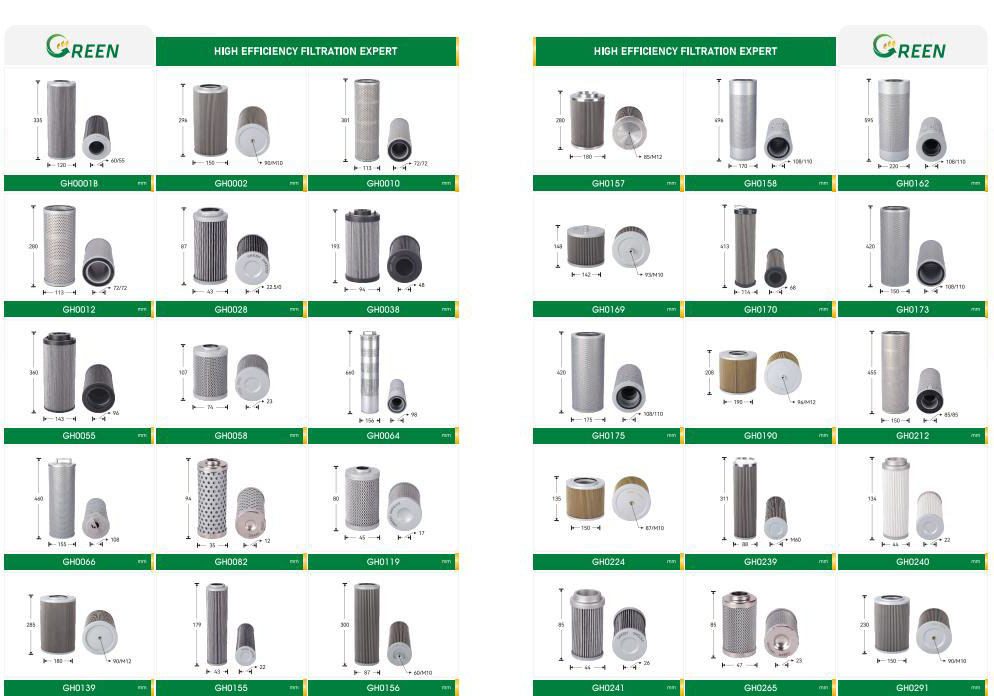 English
English Español
Español  Português
Português  русский
русский  Français
Français  日本語
日本語  Deutsch
Deutsch  tiếng Việt
tiếng Việt  Italiano
Italiano  Nederlands
Nederlands  ภาษาไทย
ภาษาไทย  Polski
Polski  한국어
한국어  Svenska
Svenska  magyar
magyar  Malay
Malay  বাংলা ভাষার
বাংলা ভাষার  Dansk
Dansk  Suomi
Suomi  हिन्दी
हिन्दी  Pilipino
Pilipino  Türkçe
Türkçe  Gaeilge
Gaeilge  العربية
العربية  Indonesia
Indonesia  Norsk
Norsk  تمل
تمل  český
český  ελληνικά
ελληνικά  український
український  Javanese
Javanese  فارسی
فارسی  தமிழ்
தமிழ்  తెలుగు
తెలుగు  नेपाली
नेपाली  Burmese
Burmese  български
български  ລາວ
ລາວ  Latine
Latine  Қазақша
Қазақша  Euskal
Euskal  Azərbaycan
Azərbaycan  Slovenský jazyk
Slovenský jazyk  Македонски
Македонски  Lietuvos
Lietuvos  Eesti Keel
Eesti Keel  Română
Română  Slovenski
Slovenski  मराठी
मराठी  Srpski језик
Srpski језик
The Role of Oil Filters in Agricultural Machinery
2025-02-17
The Role of Oil Filters in Agricultural Machinery: Ensuring Efficiency and Longevity
Agricultural machinery is the backbone of modern farming, enabling farmers to cultivate, harvest, and process crops efficiently. However, these machines operate in challenging environments, often exposed to dust, dirt, and moisture. To ensure their optimal performance and longevity, proper filtration systems are essential. Among the most critical components are oil filters, agricultural machinery oil filters, and hydraulic filters. This article explores their functions, types, and benefits, highlighting their importance in the agricultural sector.
What is an Oil Filter?
An oil filter is a device designed to remove contaminants from engine oil, transmission oil, or lubricating oil. Its primary function is to ensure that the oil circulating within the machinery is free from impurities such as dirt, metal particles, and sludge. Clean oil is essential for reducing friction, preventing wear and tear, and maintaining the efficiency of the machinery.
Key Functions of Oil Filters
1.Contaminant Removal: Captures harmful particles that can damage engine components.
2.Lubrication Enhancement: Ensures smooth oil flow, reducing friction between moving parts.
3.Temperature Regulation: Helps maintain optimal oil temperature by preventing clogging and ensuring proper circulation.
Agricultural machinery oil filters are specifically designed to meet the unique demands of farming equipment such as tractors, combine harvesters, and irrigation systems. These machines operate in environments with high levels of dust, soil, and moisture, making robust filtration systems a necessity.
Features of Agricultural Machinery Oil Filters
● High Durability: Built to withstand extreme conditions, including exposure to dirt and moisture.
● Enhanced Filtration Efficiency: Capable of capturing finer particles to protect sensitive engine components.
● Easy Maintenance: Designed for quick replacement to minimize downtime during critical farming operations.
Applications
◆ Tractors: Protect engines from contamination during plowing, seeding, and harvesting.
◆ Combine Harvesters: Ensure clean oil flow in engines operating in dusty fields.
◆ Irrigation Systems: Maintain lubrication in pumps and motors to prevent breakdowns during long hours of operation.
Hydraulic Filters: The Backbone of Hydraulic Systems in Agriculture

Hydraulic filters play a vital role in maintaining the efficiency and longevity of hydraulic systems, which are integral to many agricultural machines. These systems rely on hydraulic fluid to transmit power, and any contamination can lead to system failure.
Functions of Hydraulic Filters
◆ Contaminant Removal: Filters out particles that can damage hydraulic pumps, valves, and cylinders.
◆ Fluid Cleanliness Maintenance: Ensures the hydraulic fluid remains clean, preventing system malfunctions.
◆ Pressure Regulation: Helps maintain consistent hydraulic pressure, which is crucial for smooth operation.
Types of Hydraulic Filters
1.Suction Filters: Installed at the hydraulic pump inlet to prevent large particles from entering the system.
2.Pressure Filters: Placed in the pressure line to protect downstream components from fine contaminants.
3.Return Line Filters: Clean the fluid before it returns to the reservoir, ensuring overall system cleanliness.
Why Are These Filters Important for Agricultural Machinery?
1. Extended Equipment LifespanBy removing harmful contaminants, oil filters and hydraulic filters reduce wear and tear on critical components, significantly extending the lifespan of agricultural machinery.
2. Improved PerformanceClean oil and hydraulic fluid ensure that machinery operates at peak efficiency, providing consistent power and reducing the risk of unexpected breakdowns.
3. Cost SavingsRegular use of high-quality filters minimizes the need for costly repairs and replacements, saving both time and money in the long run.
4. Environmental BenefitsProper filtration reduces the emission of harmful pollutants by ensuring efficient combustion and reducing oil consumption.
Choosing the Right Filter for Your Agricultural Machinery
When selecting an oil filter, agricultural machinery oil filter, or hydraulic filter, consider the following factors:
● Compatibility: Ensure the filter is designed for your specific machinery model and application.
● Filtration Efficiency: Look for filters with high micron ratings to capture finer particles.
● Durability: Choose filters made from robust materials that can withstand harsh operating conditions.
● Ease of Maintenance: Opt for filters that are easy to install and replace to minimize downtime.
Conclusion
In the world of agricultural machinery, oil filters, agricultural machinery oil filters, and hydraulic filters are more than just accessories—they are essential components that ensure the smooth operation and longevity of farming equipment. By investing in high-quality filtration systems, farmers can enhance performance, reduce maintenance costs, and extend the life of their machinery. Whether you're operating a tractor, combine harvester, or irrigation system, the right filter can make all the difference in keeping your equipment running at its best.
This article highlights the importance of filtration systems in agricultural machinery, emphasizing their roles, benefits, and selection criteria. By understanding the value of oil filters, agricultural machinery oil filters, and hydraulic filters, farmers can make informed decisions to optimize their equipment's performance and durability.



